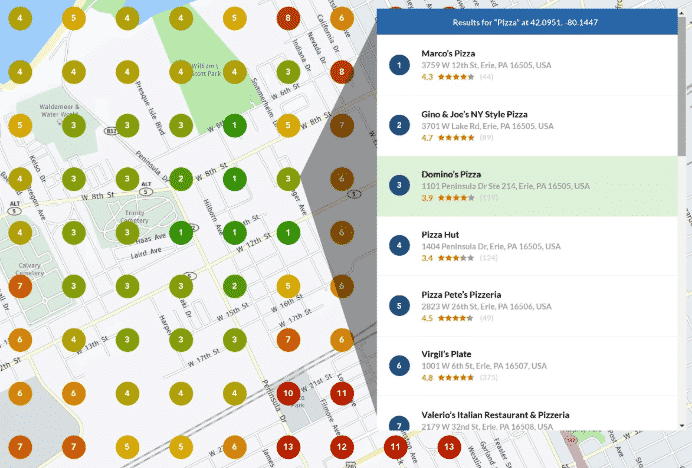Last Updated on May 26, 2022 by admin
One of the fun parts of doing SEO is playing with new tools and there’s never a shortage of them. Of course, the reason for so many new tools is because Google never stands still. So every time Google makes a change or offers up something new, it’s our job to figure out how to measure and understand the new landscape. As Google has moved to increasingly local results, this has changed the game as far as local accountant SEO and how things are ranked.
Before we get into the new toys and managing our expectations circa 2020, let’s take a look in the rearview mirror, shall we?
One accountant to rule them all!
It wasn’t that long ago that I could confidently make a statement along the lines of, “It shouldn’t be that hard to get you to rank number one for the phrase accountant in {insert town here}”. Before the world went completely mobile, forcing Google to follow suit, it was possible to basically own a city or territory by being the one ranking service provider for a city or geographic region. It didn’t matter if you were searching from the middle of town, another state, or next door to another business that did the same thing. You basically held the ring of power at that point…y’know, if the ring of power made you incredibly visible instead of invisible…

No accountant should have that type of power
Well, that seemed to be Google’s stance. More importantly, it didn’t make sense to constantly feature the same results when people could be right down the street from another high-quality business that offers the same products or services. Google knows where you’re at, so to give you better results why not show you the accountant at the end of your block rather than the one three train stops away?
Localizing results gives better results for users, but it sucks as an accountant or SEO that used to reel in all that sweet, sweet traffic. The other issue is trying to track localized rankings. Unless you want to move around town and do searches yourself, you’d need a tool to see how you show up based on location. Enter LocalFalcon.

The screenshot above shows LocalFalcon in action. You simply enter your business, the radius you want to check, how many points you want to check, and what keyword you want to see the rankings for. Then, like Elven magic, it creates a map as you see above, showing where you rank based on location. Nice, right?
What this means for accountant SEO
A friend of mine likes to say the key to life is managing expectations, and he’s not wrong. While it used to be great fun to wield mighty SEO power over your city, it’s no longer realistic to think you can own vast swaths of territory in SERPs anymore. Depending on how much competition you have in your city or town, you’re going to fall down the listings as users search from farther away.
If you’re in a competitive city and not located in a densely populated or highly trafficked area, you’re likely at a bit of a disadvantage. Sad but true. Ultimately, the slice of the pie is going to be smaller for you than it once was as three-pack rankings and map listings won’t be as kind as they once were. Your best bet is to continue following best practices for local SEO to make sure you squeeze every last drop out of your three-pack traffic but also rank as highly as possible beneath the three-pack to get as many clicks as you can from users who are willing to scroll down the page.

Leave a Reply